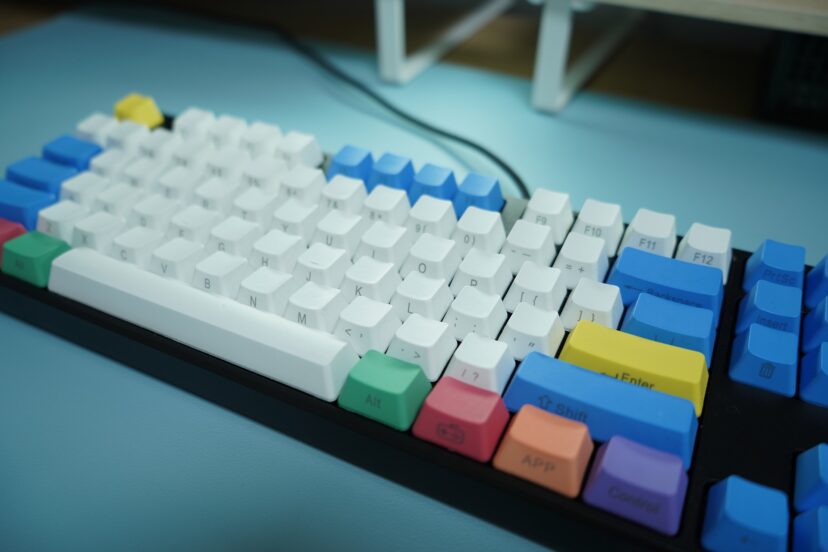What Is The Lifespan Of A Mechanical Keyboard? 8 Useful Factors to Keep in Mind
What Is The Lifespan Of A Mechanical Keyboard: Introduction
A Pressing Question: How Long Does a Mechanical Keyboard Last?
“What is the lifespan of a mechanical keyboard?” It’s a question that has undoubtedly crossed the mind of anyone who spends a significant amount of time in front of a computer. Whether you’re an avid gamer executing rapid keystrokes, a programmer coding into the late hours, or a writer crafting your latest masterpiece, knowing the lifespan of your mechanical keyboard can be more crucial than you think.
A Keyboard Unlike Any Other
Mechanical keyboards are renowned for their durability and longevity. Built with individual mechanical switches for each key, these keyboards are not just about delivering a tactile and auditory experience; they are designed to be robust. But exactly how durable are they, and what determines their longevity?
Factors That Affect Lifespan
In this article, we will delve into the factors that can impact the lifespan of a mechanical keyboard. From the quality of the materials used to the frequency of usage, several variables can either extend or shorten the life of this indispensable tool. We’ll also discuss maintenance tips and potential warning signs of a keyboard nearing the end of its functional life.
Unlock the Potential of Your Keyboard
So gear up to explore the captivating realm of mechanical keyboards. Whether you’re a seasoned user or a curious newbie, this article aims to provide comprehensive insights into the lifespan of a mechanical keyboard. By the end, you’ll have a much clearer understanding of just how long you can expect your trusty keyboard to serve you well.
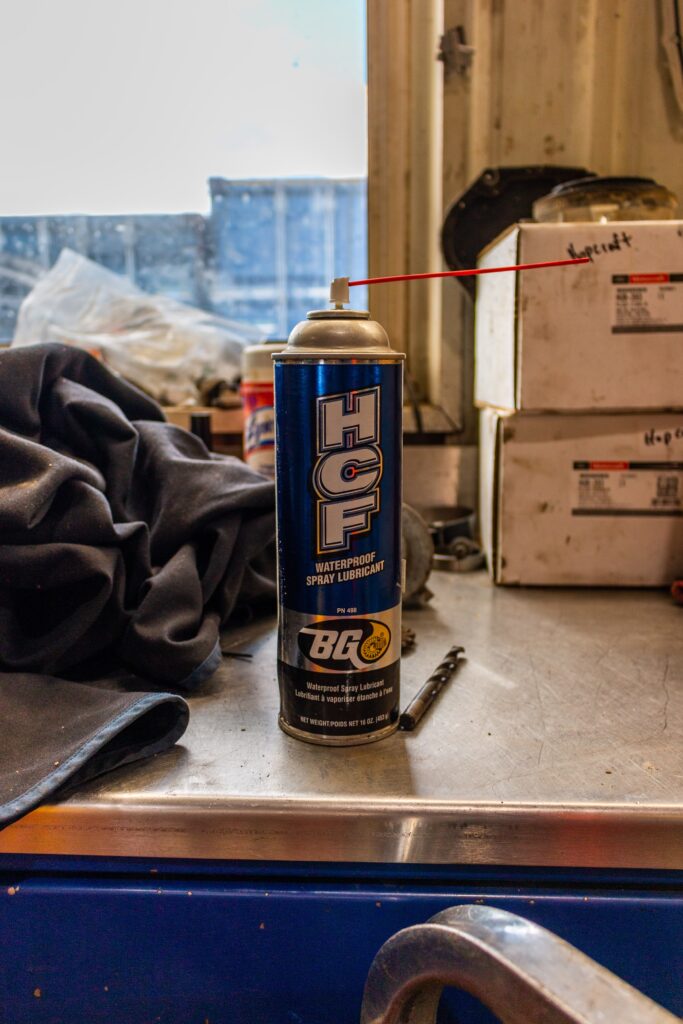
What Is The Lifespan Of A Mechanical Keyboard: The Basics
Mechanical keyboards have gained popularity in recent years due to their durability, tactile feedback, and overall typing experience. Unlike membrane keyboards, which use a rubber dome membrane to register key presses, mechanical keyboards utilize individual mechanical switches for each key. This distinction greatly impacts the lifespan and performance of mechanical keyboards.
Mechanical Keyboards vs. Membrane Keyboards
When it comes to lifespan, mechanical keyboards have a clear advantage over membrane keyboards. Membrane keyboards typically have a lifespan of around 5 million keystrokes, whereas mechanical keyboards can easily last for 50 million to 100 million keystrokes, and sometimes even more. This significant difference can be attributed to the design and construction of mechanical switches.
How Mechanical Keyboards Work
Mechanical keyboards work by utilizing mechanical switches under each keycap. When a key is pressed, the switch underneath registers the keystroke and sends an electrical signal to the computer. Mechanical switches are made up of several components, including a spring and stem, which work together to provide tactile feedback and actuation force. This intricate design allows for precise and reliable typing performance.
Factors Affecting Lifespan
Several factors can impact the lifespan of a mechanical keyboard. These include build quality, switch type, keycap material, frequency of use, and maintenance and care.
Build Quality
The build quality of a mechanical keyboard plays a significant role in determining its lifespan. A well-constructed keyboard with high-quality materials will generally last longer than a cheaply made one. It’s crucial to consider factors such as the material used for the keyboard housing, the sturdiness of construction, and the quality control measures taken during manufacturing.
Switch Type
The type of switches used in a mechanical keyboard can greatly affect its lifespan. There are several different types of mechanical switches available, such as Cherry MX, Gateron, and Kailh, each with its characteristics. Some switches are known for their durability and longevity, while others may wear out more quickly. It’s essential to select switches that align with your typing preferences and longevity requirements.
Keycap Material
The keycap material can also impact the lifespan of a mechanical keyboard. Keycaps are typically made from various materials, including ABS (acrylonitrile butadiene styrene), PBT (polybutylene terephthalate), and even more exotic options like metal or wood. Different materials have different levels of resilience and wear resistance, so selecting keycaps made from durable materials can extend the lifespan of your keyboard.
Frequency of Use
The frequency at which you use your mechanical keyboard can affect its lifespan. Continuous and intense use of the keyboard, such as extensive typing for long durations or high numbers of keystrokes per day, can put more strain on the switches and keycaps. Moderating the frequency of use or considering a keyboard with more robust components can help prolong its lifespan.
Maintenance and Care
Proper maintenance and care are vital to maximizing the lifespan of a mechanical keyboard. Regular cleaning of the keycaps and switches can prevent dust and debris buildup, which can affect performance over time. Additionally, protecting the keyboard from spills and avoiding excessive force or rough handling can help prevent unnecessary damage.
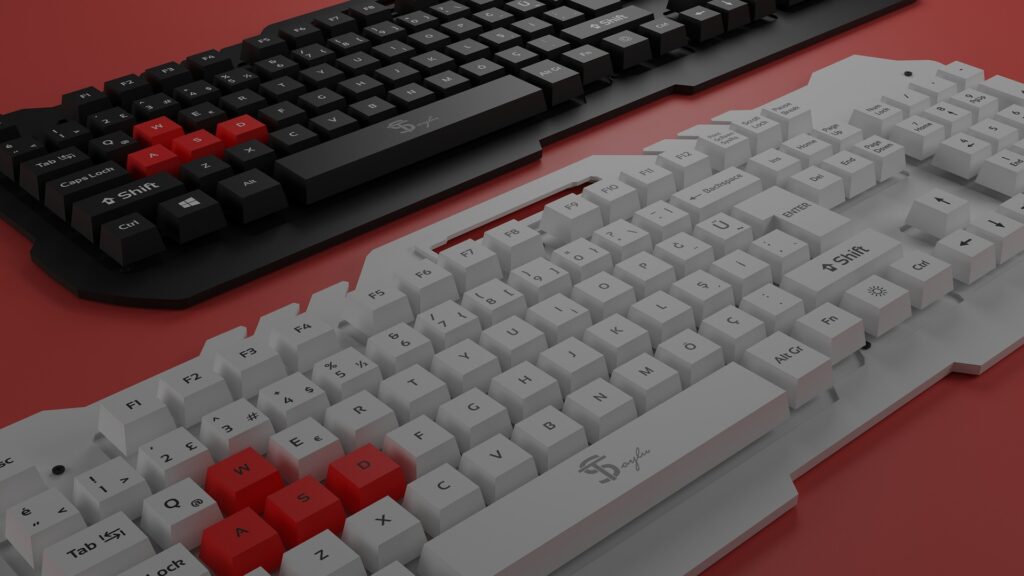
What Is The Lifespan Of A Mechanical Keyboard: Build Quality
The build quality of a mechanical keyboard is a crucial factor affecting its lifespan. The materials used in constructing the keyboard and the sturdiness of its construction play significant roles in its durability.
Material Used
The material used for the housing and frame of a mechanical keyboard can vary widely. Common materials include plastic, aluminum, and even steel. Each material has its advantages and drawbacks in terms of strength, weight, and durability. Choosing a keyboard made from high-quality materials can ensure it withstands the test of time.
Sturdiness of Construction
The sturdiness of the construction refers to how well the different components of the keyboard are put together. A well-built keyboard will have minimal flex or wobbling, indicating that it can withstand regular use without experiencing structural issues. Sturdiness is especially important for keyboards that may travel frequently or be subject to more demanding usage scenarios.
Quality Control
The level of quality control measures taken during the manufacturing process can greatly affect the overall build quality of a mechanical keyboard. Higher-quality control standards ensure that defective or subpar components are identified and corrected before the keyboard reaches the customer. Purchasing from reputable brands with a strong reputation for quality control can significantly increase the likelihood of a durable and long-lasting keyboard.
Switch Type
The type of switch used in a mechanical keyboard is a crucial factor in determining its lifespan. Mechanical switches come in various types, each with different characteristics and durability.
Different Types of Mechanical Switches
Mechanical switches vary in their design, actuation force, tactile feedback, and noise level. Common switch types include Cherry MX, which offers various options such as Red, Blue, Brown, and Black switches, as well as alternative brands like Gateron, Kailh, and Topre. Each switch type has its unique feel and lifespan rating, so selecting switches that align with your preferences and requirements is essential.
Durability of Switches
Different switch types have different durability ratings, typically measured in keystrokes. Cherry MX switches, for example, are generally rated for 50 million to 100 million keystrokes, while some alternatives may offer even higher durability. It’s essential to consider the rated lifespan of the switches when purchasing a mechanical keyboard, particularly if you anticipate heavy or prolonged use.
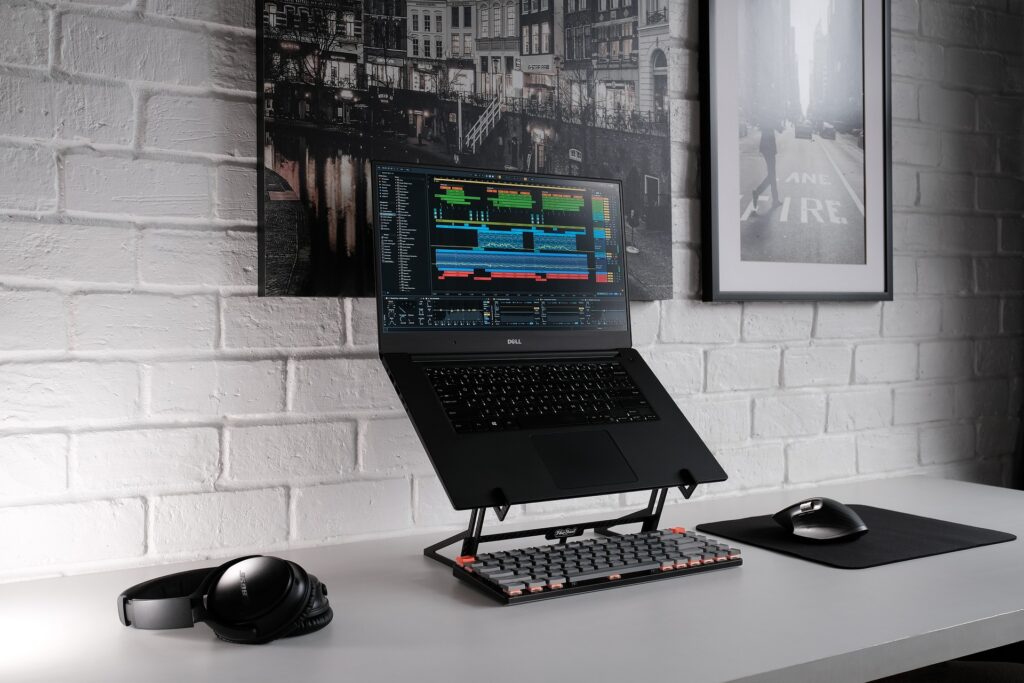
Keycap Material
The material used for the keycaps can impact both the aesthetic appeal and the lifespan of a mechanical keyboard.
Types of Keycap Materials
Keycaps can be made from various materials, including ABS, PBT, and more exotic options such as metals or wood. ABS keycaps are commonly found and offer a smooth texture, but they may wear out more quickly over time. PBT keycaps, on the other hand, are known to be more durable and resistant to wear. Considering the material used for the keycaps can ensure a longer-lasting and visually appealing keyboard.
Resilience and Wear Resistance
The resilience and wear resistance of keycaps are important factors in determining their lifespan. Keycaps made from high-quality materials and with proper protective coatings are less prone to fading, shining, or becoming shiny over time. It’s recommended to choose keycaps that are known for their durability and resistance to wear, especially if you expect to use your keyboard extensively.
What Is The Lifespan Of A Mechanical Keyboard: Frequency of Use
The Link Between Frequency and Longevity
The frequency at which you use your mechanical keyboard plays a crucial role in determining its lifespan. It’s not just the hours spent typing but also the type of activity—whether it’s regular office work, intense gaming sessions, or specialized tasks like programming—that contribute to the wear and tear on your keyboard’s mechanical components.
Typing Duration: The Long and Short of It
When discussing typing duration, it’s not just about the total time you spend at the keyboard, but also how you manage that time. Longer typing sessions can create a considerable amount of stress on the keyboard’s switches and keycaps. It’s a good practice to take breaks, both for your hands and for your keyboard. Allow the keyboard a chance to “cool down” and relieve stress on its mechanical components, thereby extending its lifespan.
Counting the Keystrokes: Use But Don’t Abuse
Mechanical keyboards often come with a rated lifespan measured in keystrokes, sometimes even as high as tens of millions of keystrokes. This means they are designed to handle heavy usage for an extended period. However, if your daily typing or gaming sessions consistently approach or exceed these rated keystrokes, consider a mechanical keyboard with higher durability ratings. This will ensure that you aren’t rapidly approaching the end of your keyboard’s functional life.
Usage Intensity: How Hard Is Too Hard?
The intensity of your usage also plays a significant role in your mechanical keyboard’s longevity. Forceful typing or aggressive gaming maneuvers can put additional stress on the switches and keycaps, potentially causing premature wear or even outright failure. Proper typing technique, which includes avoiding “bottoming out” the keys or striking them with excessive force, can contribute to the durability of the mechanical switches. A softer touch can go a long way in preserving your keyboard’s lifespan.
In conclusion, frequency of use is not a straightforward variable; it encompasses the duration, keystrokes, and the intensity of your keyboard usage. Being mindful of these aspects can significantly help you extend the lifespan of your mechanical keyboard, ensuring that it remains a reliable partner in your day-to-day tasks or epic gaming sessions.
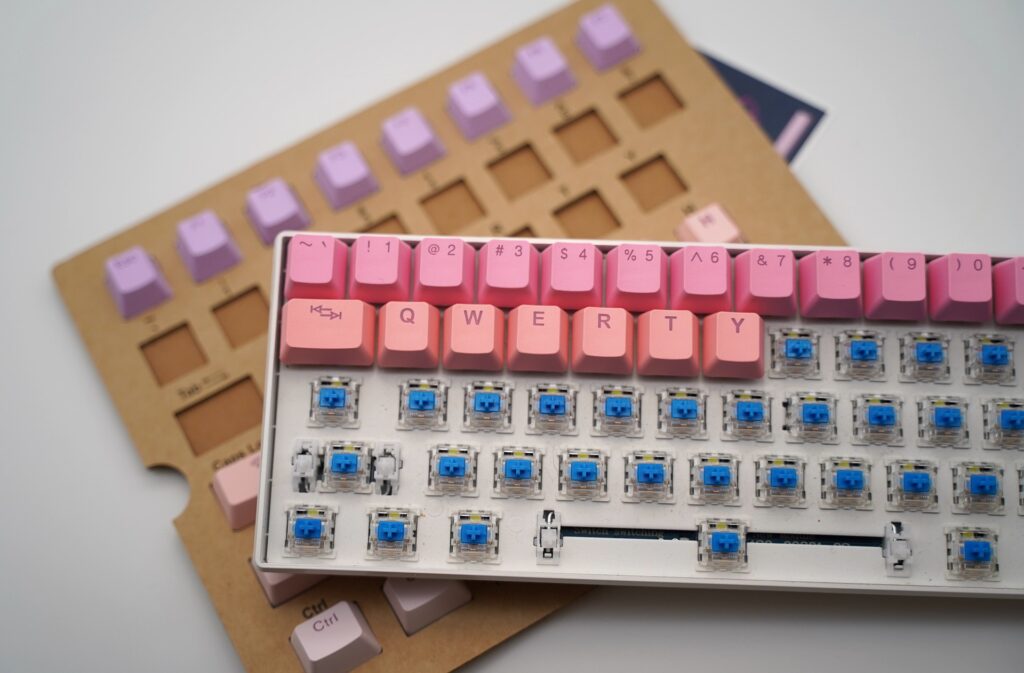
Maintenance and Care
Proper maintenance and care are essential for maximizing the lifespan of a mechanical keyboard. Regular cleaning, protection from spills, and gentle handling can greatly extend the keyboard’s durability.
Cleaning
Regular cleaning is crucial to prevent dust and debris buildup, which can affect the performance and lifespan of a mechanical keyboard. Cleaning the keycaps periodically with a keycap puller and a mild cleaning solution can help remove dirt and oils. Additionally, using compressed air to clean the switch internals can prevent small particles from interfering with the switch mechanism.
Protection from Spills
Accidental spills can cause significant damage to a mechanical keyboard. Liquid spills can seep into the switches and lead to malfunction or corrosion. Using spill-resistant keyboards, keyboard covers, or being cautious when consuming beverages near the keyboard can help mitigate the risk of spills and prolong the keyboard’s lifespan.
Avoiding Excessive Force or Rough Handling
Excessive force or rough handling can cause physical damage to the switches, keycaps, or keyboard housing. Slamming the keys or aggressively removing keycaps can lead to misalignment, cracking, or other types of damage. Treating your mechanical keyboard with care and avoiding unnecessary force when typing or maintaining the keyboard can help prevent premature wear and extend its lifespan.
What Is The Lifespan Of A Mechanical Keyboard: Expected Lifespan
Determining the exact lifespan of a mechanical keyboard can be challenging, as it depends on various factors. However, considering manufacturer specifications and average lifespans can provide valuable insight.
Manufacturer Specifications
Most reputable keyboard manufacturers provide specifications regarding the expected lifespan of their mechanical keyboards. This lifespan is typically measured in millions of keystrokes and can serve as a general guideline for the durability of the keyboard. However, it’s important to remember that manufacturer specifications represent an estimate and may vary based on usage patterns and other factors.
Average Lifespan of Mechanical Keyboards
On average, mechanical keyboards are designed to last significantly longer than membrane keyboards. With proper usage and maintenance, a mechanical keyboard can last for several years, and some enthusiasts have reported using their keyboards for over a decade without significant issues. The lifespan of a mechanical keyboard will ultimately depend on the specific factors mentioned above, as well as the quality of the components and the amount of wear and tear it experiences over time.

Signs of Wear and Tear: When to Pay Attention
Recognizing the signs of wear and tear is essential to maintaining your mechanical keyboard’s performance and durability. Being proactive can save you from unexpected keyboard failures and give you a heads-up when replacement parts or repairs are necessary.
Keycap Fading or Aging: More than Just Cosmetic
Over time, your keyboard’s keycaps may start to show visible signs of wear, such as fading legends or discolored plastic. These aesthetic changes might not affect functionality, but they can impact your typing experience by making keys harder to identify. If the legends on the keycaps, whether printed or engraved, start to become hard to read or entirely disappear, this is a clear sign that it’s time to look into replacement keycaps. Modern keycaps made from high-quality PBT plastic or double-shot molding techniques offer enhanced durability, so consider these when making replacements.
Switch Degradation: Loss of That Clicky Feel
One of the appeals of a mechanical keyboard is the tactile or clicky feedback it provides. However, as the keyboard ages, switches may lose their original crispness. You may start to notice that certain keys feel mushy, less tactile, or even become inconsistent in how they register your presses.
This degradation can affect your typing speed, accuracy, and overall satisfaction. If you notice such inconsistencies, it could be an indication that the switches are wearing out. Some mechanical keyboard enthusiasts opt to replace individual switches, a feasible task for those who are handy with a soldering iron.
Inconsistent Key Presses: A Warning Signal
If you’re experiencing inconsistent key presses—such as keys registering multiple strokes or missing keystrokes altogether—it may be time for more in-depth maintenance. Inconsistent behavior like this can result from worn-out switches, degraded springs, or faulty stabilizers.
These issues can significantly impede your typing experience and accuracy, especially in high-stakes tasks like gaming or programming. Regular cleaning might temporarily alleviate these issues, but if the problem persists, replacing the affected switches or seeking professional repair services may be necessary.
By keeping an eye out for these signs of wear and tear, you can proactively address issues, perform necessary maintenance, and make timely replacements. This attention to detail will enable you to maximize the lifespan of your mechanical keyboard, keeping it a reliable tool for years to come.
What Is The Lifespan Of A Mechanical Keyboard: Conclusion
Superiority Over Membrane Keyboards
Mechanical keyboards stand head and shoulders above membrane keyboards in terms of both lifespan and overall typing experience. The tactile feedback, audible click, and individual actuation for each key make mechanical keyboards not just a utility, but a pleasure to use.
The Importance of Build Quality and Materials
When it comes to longevity, the build quality is paramount. The type of switches used, whether they are Cherry MX, Romer-G, or any other brand, can significantly influence how long your keyboard will last. Similarly, the keycap material—whether it’s ABS or PBT plastic—plays a crucial role in the keyboard’s wear and tear.
Frequency of Use and Care
Your keyboard’s lifespan is also directly tied to how often you use it and how well you maintain it. Even the best mechanical keyboards can falter if abused or neglected. Regular cleaning and proper storage can go a long way in ensuring that your keyboard remains functional for years.
Maximize Your Keyboard’s Potential
By paying attention to factors like build quality, switch type, and keycap material, you can make an informed decision that will serve you well in the long run. Proper maintenance and care can further maximize your keyboard’s lifespan, allowing you to enjoy a reliable and fulfilling typing experience for many years.
Your Long-Term Typing Companion
So, if you’re looking for a durable, long-lasting typing companion, a mechanical keyboard is a wise investment. Choose one that suits your specific needs, be diligent in its care, and you can look forward to years, if not decades, of efficient and enjoyable typing. Thank you for diving into the fascinating world of mechanical keyboards with us, and may your keystrokes always be swift and satisfying!

